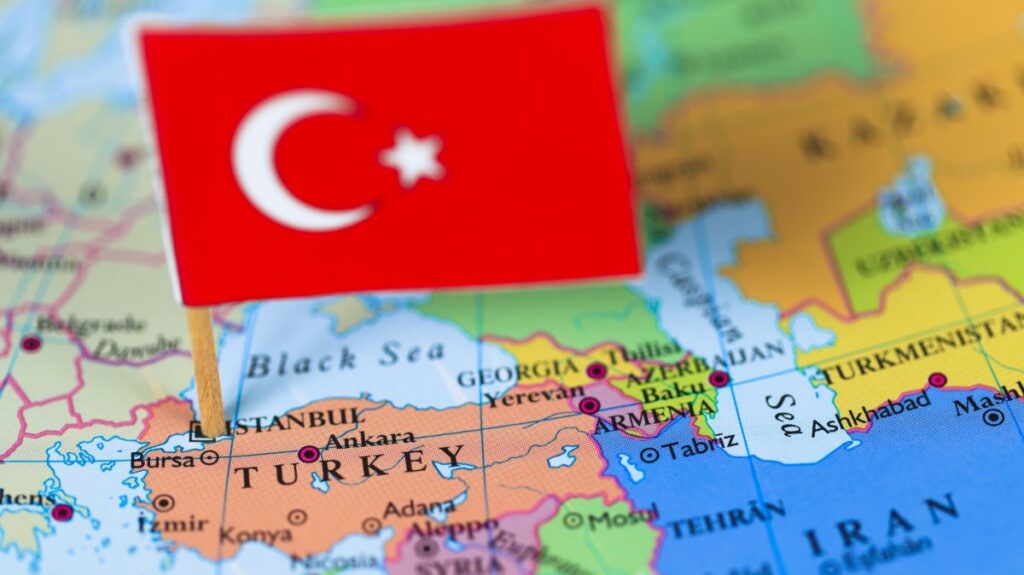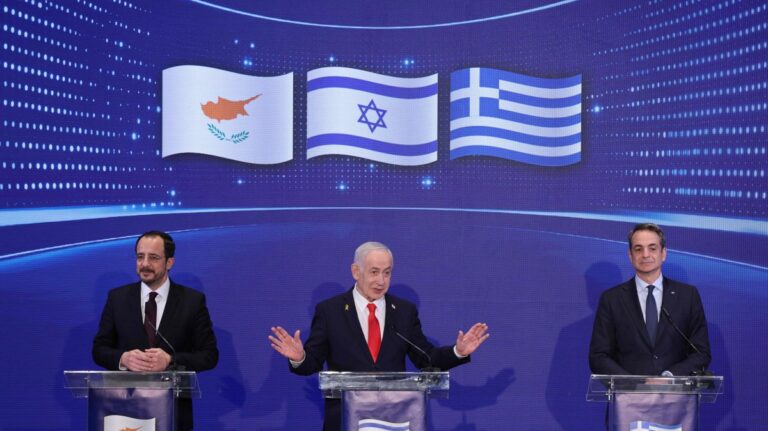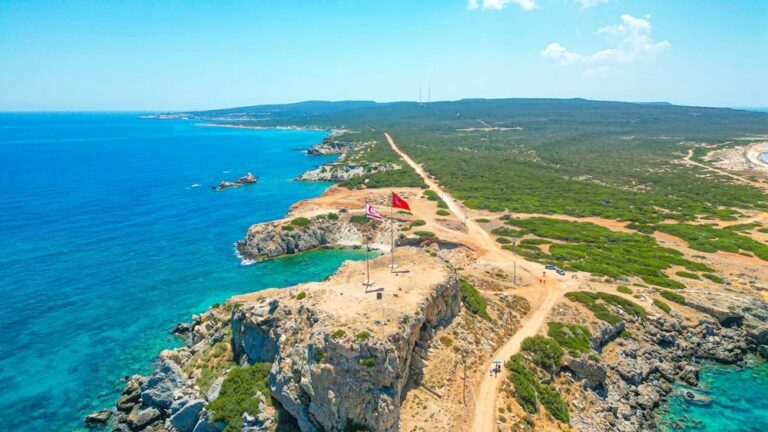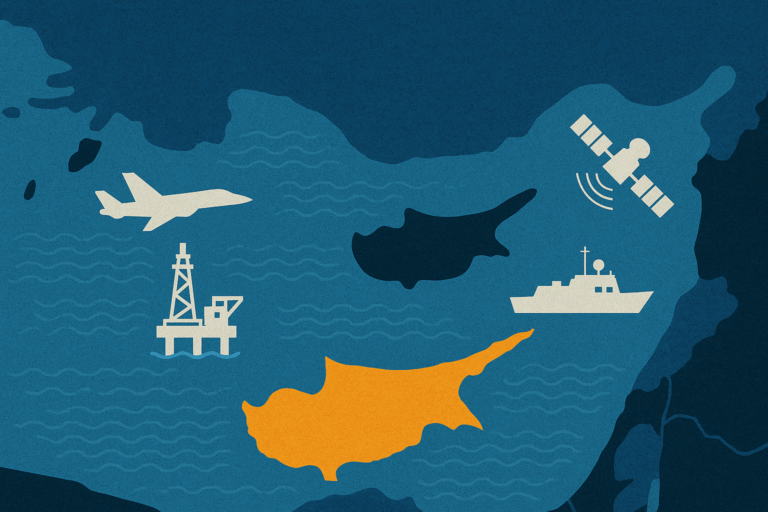Once dismissed as a mere regional actor, Türkiye has now stepped onto the global stage with unshakable confidence, asserting its influence in diplomacy, geo-strategy, energy, soft power, trade, technology and defense. No longer content with merely reacting to global shifts, Ankara is now actively dictating them.
Yet power, much like gravity, attracts resistance. Türkiye’s ascent has unsettled certain regional players – none more so than Iran and Greece, which see Ankara’s expanding footprint as a direct challenge to their own precarious ambitions.
Turkic rise instills fear
Tehran, in a fit of strategic anxiety, has ramped up its anti-Türkiye rhetoric while paradoxically supporting the PKK terrorist group in Türkiye and Syria – a masterclass in irony, given its own struggles with ethnic unrest. Intelligence reports suggest Iran is scrambling to execute “population engineering” in East and West Azerbaijan to snuff out the surging pan-Turkic sentiment along the Turkish-Azerbaijani border – a move as subtle as an elephant breakdancing in a china shop.
Iran is anxious about Türkiye’s rise to power for several reasons. However, it seems that it is most concerned about the resurgence of national brotherhood among Turkic countries, with Türkiye taking a leadership role in this revitalized alliance.
The strengthening of the Organization of Turkic States (OTS) has compounded Tehran’s existential dread. The mere thought of a cohesive Turkic bloc stretching from Anatolia to Central Asia sends shudders through Iran’s corridors of power. A regime built on fragile ethnic hierarchies cannot afford to acknowledge the reality of its own sizable Turkic population.
Then there’s TRT Farsi, Türkiye’s Persian-language broadcaster, which has become a persistent thorn in Tehran’s side. Iran has long maintained an iron grip over Persian-language media, ensuring that narratives about regional politics, Turkish history and ethnic identities align with its state-sanctioned worldview. But TRT Farsi has disrupted this monopoly, offering Iranian audiences an alternative lens that resonates not just with reformists but also with Azerbaijani Turks, Kurds and other marginalized communities.
Syria – once an Iranian stronghold – has slipped through Tehran’s fingers with the fall of the Assad regime, while Türkiye’s military and diplomatic maneuvers have systematically outflanked Iranian proxies. In Iraq, Ankara’s deepening ties with the regional communities and strategic investments are further eroding Iranian influence. In addition, Türkiye’s alternative energy pipeline projects threaten to render Iran increasingly irrelevant in regional energy transit and Tehran finds itself outmaneuvered at every turn.
Iran’s dogmatic perception
Diplomatic tensions reached a boiling point in early March when Iran summoned the Turkish ambassador over growing disagreements – a symbolic tantrum, if nothing else. But what, exactly, does Iran hope to accomplish? Isolated by Western sanctions, vulnerable to Israeli and U.S. strikes and reduced to issuing fiery but empty threats, Iran’s leverage over Türkiye is paper-thin. Ankara is not just outplaying Tehran; it is systematically dismantling its regional footholds piece by piece.
Beyond geopolitics, the most bitter pill for Iran is its self-inflicted stagnation. Once considering itself Türkiye’s equal, Tehran now watches as Ankara deftly balances relations between East and West while Iran suffocates under economic turmoil, political repression and ideological rigidity. Türkiye’s rise is a haunting reflection of what Iran could have been – had it chosen pragmatism over dogma.
The irony runs deep: Iran’s supreme leader and president both hail from Azerbaijani Turkic backgrounds. Yet, Tehran conveniently ignores this while railing against Türkiye’s growing influence. A nation shaped by the Seljuks, Safavids and Qajars now finds itself at odds with the civilization that once defined it.
Greece’s eternal frustration
While Iran grapples with its fading influence, Greece clings to its long-standing tradition of regional victimhood, coupled with provocative posturing. So far secure under the EU’s protective wing, Athens continues to push expansionist maritime claims, enforce discriminatory policies against its Turkish minority and militarize disputed islands – all while expecting unconditional Western sympathy. This is despite Greece’s well-documented history of harboring the PKK and Gülenist Terror Group (FETÖ) terrorist organizations.
The Western Thrace Turkish minority remains a case in point. Athens has systematically shut down Turkish schools, appointed religious leaders unilaterally and also pressured Turkish communities in Rhodes and Kos. Meanwhile, Greece’s militarization of the Aegean islands in violation of international agreements is a calculated provocation, driven by the naive assumption that Brussels or NATO will intervene on its behalf. At the same time, Athens has allowed the U.S. to establish new military bases on its territory, further escalating regional tensions.
Then there’s the never-ending Cyprus issue. Half a century of failed negotiations, like the latest one in Geneva, have proven that the dream of a Greek Cypriot-dominated common federation state is dead. Yet Athens refuses to accept this reality, stubbornly rejecting any solution that includes recognizing the Turkish Republic of Northern Cyprus (TRNC).
There are also the unrealistic, even absurd, claims of Greece on the Eastern Mediterranean. The Seville Map – a non-binding academic study cited by Athens to justify its maritime claims – has only deepened tensions in this respect, particularly regarding contested gas fields. However, the 2019 Türkiye-Libya maritime agreement upended Athens’ maximalist ambitions, shifting the regional balance. Worse still for Athens, Ankara has been repairing ties with Egypt and other regional players, further isolating Greece in its echo chamber.
Adding to the tensions is the ongoing dispute over the uncleared status of several islands in the Aegean, which Greece continues to occupy while unilaterally defining maritime boundaries in its favor. This is not only a blatant violation of international agreements but also an act of deliberate provocation. Türkiye, committed to defending its sovereignty, has repeatedly called for resolving these disputes through dialogue – though Athens, emboldened by its EU backing, seems more interested in escalation than resolution.
Relying on foreign powers
Adding to its unease, Türkiye’s meteoric rise in the defense industry has rattled Greek policymakers. The success of Turkish drones – reshaping modern battlefields from Africa to Europe and Asia – has fundamentally altered the military balance. Further amplifying this shift, Turkish drone giant Baykar has recently partnered with Italy’s Leonardo, underscoring Ankara’s expanding influence in the global defense sector and its ability to forge strategic alliances beyond its immediate region. Türkiye’s indigenous defense advancements, fueled by initiatives like TeknoFest, especially among young academics, have left Athens scrambling to keep up.
And for all its posturing, Greece should know better. If Washington’s handling of Ukraine has taught us anything, it’s that relying on Western powers for unconditional support in geopolitical gambles is wishful thinking. Moreover, as trans-Atlantic tensions grow, the EU is increasingly aligning itself with Türkiye over Greece – a shift evident in key invitations to high-level events, where Athens is conspicuously absent, as well as in statements from top EU diplomats acknowledging Türkiye’s indispensable role in regional security and stability.
Türkiye’s unapologetic ascent
Beyond these contested areas, Türkiye’s diplomatic reach continues to expand: From Nagorno-Karabakh to the Northern Black Sea, from the Balkans to Africa, Ankara’s ability to mediate, broker and influence has positioned it as a sought-after power player and peace-maker. While Western capitals, for instance, fumble through crises, President Recep Tayyip Erdoğan remains the most in-demand statesman of the greater region, consistently at the center of high-stakes summits and geopolitical maneuvering.
Given its rising stature, Türkiye’s recent demand for a permanent seat at the U.N. Security Council is also more than justified – considering that the exclusion of a Muslim-majority nation from the Council is an outdated relic of post-World War II power structures. As Erdoğan has frequently stated, “The world is bigger than five,” advocating for a reformed U.N. Security Council that reflects the realities of the 21st century.
For sure, resistance to Türkiye’s rise is inevitable. But Türkiye is not waiting for permission. It is not seeking approval. Once again, it is asserting its place on the global stage. History does not favor those who resist change – it favors those who drive it. And Türkiye is not just adapting to a changing world but shaping that change.




